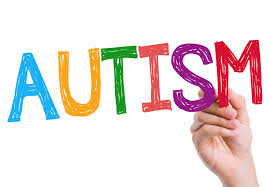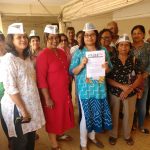TEAM TNV
April is Autism Awareness Month and April 2 is World Autism Awareness Day (WAAD)—a day aimed at spotlighting Autism Spectrum Disorder (ASD).
There’s no medical detection or cure for ASD—but across the country groups are working to educate the public on the disorder.
Autism is an issue that is slowly gaining more understanding and WAAD is designed to celebrate the unique talents of those living with autism.
Autism is a spectrum disorder because no two children will have the same special needs, the same capabilities or the same disabilities. Autism comes with many misconceptions, but groups like Autism Speaks, have been working for years to raise more awareness.
Autism is a social communication disorder and is something children are born with, it doesn’t make them who they are. Parents of children with autism often feel isolated or detached from other parents who cannot understand their struggles but through support groups and therapy, parents and children learn together how to bring out the child’s full potential.
Some facts about autism
- An estimated 50,000 teens with autism become adults – and lose school-based autism services – each year.
- Around one third of people with autism remain nonverbal.
- Around one third of people with autism have an intellectual disability.
- Certain medical and mental health issues frequently accompany autism. They include gastrointestinal (GI) disorders, seizures, sleep disturbances, attention deficit and hyperactivity disorder (ADHD), anxiety and phobias.
Back in 2007, the United Nations supported the idea of WAAD and is one of only four health-specific awareness days recognized by the UN. As part of the campaign, people are encouraged to wear blue to support autism awareness and hundreds of thousands of landmarks, buildings and home around the world will light up in blue in recognition of people living with autism.
As a growing global health issue owing to its increasing exposure in the press and common knowledge, autism is an issue that is only gaining more understanding – and WAAD activities are planned every year to further increase and develop world knowledge of children and adults who have autism spectrum disorder (ASD).



























